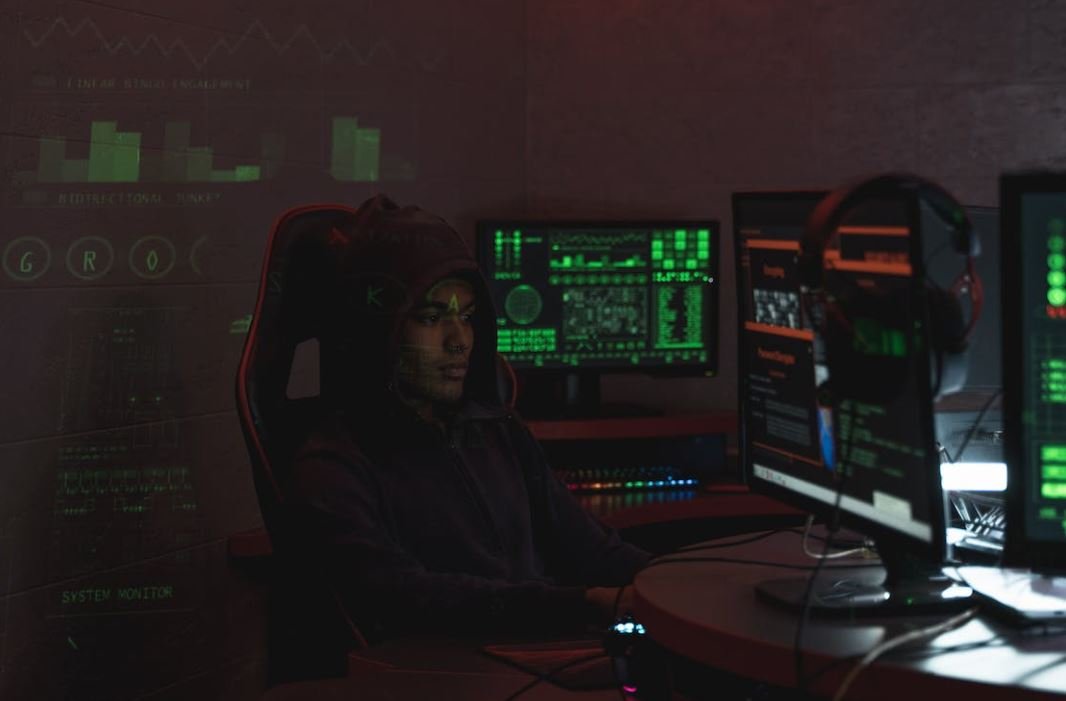No Code Game Engine
Creating video games no longer requires advanced programming skills thanks to the emergence of no code game engines. These intuitive platforms empower creators of all backgrounds to design and develop their own games without writing a single line of code.
Key Takeaways
- No code game engines allow for game development without programming knowledge.
- Creatives can design and develop games using intuitive visual interfaces.
- No code game engines provide a range of tools for artwork, animations, and sound.
- No code game engines enable rapid prototyping and iteration for game development.
Benefits of No Code Game Engines
No code game engines offer numerous advantages to aspiring game developers. These platforms allow novices to dive into game development without the steep learning curve of programming languages.
With no code game engines, creativity takes the forefront while technical barriers diminish.
Here are some benefits:
- Rapid Development: No code game engines provide a visual interface that allows drag-and-drop functionality, significantly speeding up development time.
- Accessibility: People without programming knowledge can still bring their game ideas to life, democratizing the game development landscape.
- Asset Libraries: Pre-built assets, including artwork, animations, and audio, are often available within the game engines, reducing the need for extensive artistic skills.
- Community Support: No code game engine communities offer forums, tutorials, and templates, fostering collaboration and knowledge-sharing among developers.
Popular No Code Game Engines
Several no code game engines have gained popularity in recent years due to their user-friendly interfaces and versatile features. Let’s explore three of them:
| Name | Platform Support | Features |
|---|---|---|
| GameMaker Studio | Windows, macOS, Android, iOS, HTML5, more | Visual scripting, sprite animation, physics engine, built-in code editor |
| Construct | Windows, macOS, HTML5 | Event system, drag-and-drop editor, plugin support, multiplayer functionality |
| Unity Playmaker | Windows, macOS, Linux, iOS, Android, WebGL | State machine visual scripting, cross-platform deployment, asset store integration |
No code game engines offer a range of features catering to different game development needs.
GameMaker Studio provides an extensive set of tools for 2D game development, while Construct emphasizes simplicity and rapid prototyping. Unity Playmaker integrates with the popular Unity engine, offering scalability for more complex projects.
Creating Games with a No Code Engine
Developing a game using a no code engine follows a general workflow:
- Design your game concept and mechanics.
- Choose a no code game engine that aligns with your goals.
- Create or import assets, such as characters, backgrounds, and audio.
- Utilize the visual interface to construct game levels and interactions.
- Test and iterate on your game design.
- Export your game to desired platforms, including desktop, mobile, or web.
No Code Game Engine Vs. Traditional Programming
While no code game engines offer a convenient entry point to game development, traditional programming has its merits:
| No Code Game Engine | Traditional Programming |
|---|---|
| Accessibility | Flexibility |
| Rapid Prototyping | Performance Optimization |
| Visual Interface | Control Over Every Aspect |
No code game engines suit the needs of beginners or those who prioritize speed and simplicity, while traditional programming allows for greater control and optimization.
The Future of No Code Game Engines
No code game engines continue to evolve, blurring the line between accessibility and complexity. As technology advances, these engines are becoming more powerful, allowing for the creation of increasingly sophisticated games.
Furthermore, the growing community around no code game engines contributes to improved resources and expanded knowledge-sharing, fostering a supportive ecosystem for aspiring game developers.

Common Misconceptions
Misconception 1: No Code Game Engines are Ineffective
One common misconception about no code game engines is that they are not as effective as traditional code-based engines. However, this is not true. No code game engines have come a long way in terms of capability and performance. They offer a user-friendly interface, allowing users to create complex games without the need for coding knowledge.
- No code game engines offer a wide range of pre-built features and assets, saving time and effort.
- They provide intuitive drag-and-drop functionality, making game development accessible to beginners.
- No code game engines often have a supportive community, providing resources and tutorials for further learning.
Misconception 2: No Code Game Engines are Limited in Functionality
Another misconception is that no code game engines have limited functionality, and cannot create games with the complexity and depth of those built with traditional code. However, this is not the case. No code game engines are continuously evolving, offering advanced features and tools to create complex and immersive gaming experiences.
- No code game engines support various game genres, including platformers, RPGs, and puzzle games.
- They allow for the creation of detailed game mechanics, character AI, and interactive environments.
- No code game engines often have extensibility options, allowing users to add custom code if desired, to further expand functionality.
Misconception 3: No Code Game Engines are Only for Beginners
It is a common misconception that no code game engines are only suitable for beginners or hobbyist game developers. However, this is far from the truth. No code game engines are used by professional game developers and studios worldwide to create high-quality games.
- Experienced developers can leverage the visual scripting system of no code game engines to rapidly prototype and iterate game mechanics.
- No code game engines are often used for game jams, enabling developers to quickly create playable prototypes within a limited timeframe.
- No code game engines can be a valuable tool for experienced developers looking to quickly create smaller scale games or experiment with new ideas.
Misconception 4: No Code Game Engines are Unreliable
Some people believe that no code game engines are unreliable and prone to crashes and bugs. However, like any software, the reliability of a no code game engine depends on the specific engine and the developer’s implementation.
- No code game engines go through rigorous testing and updates to ensure stability and performance.
- Choosing a reputable and well-supported no code game engine can greatly minimize the risk of encountering reliability issues.
- Regular updates and bug fixes provided by the engine developers contribute to the stability of the engine.
Misconception 5: No Code Game Engines Sacrifice Customization
Some individuals may believe that using a no code game engine restricts the ability to customize and tailor a game to specific needs. However, this is not accurate as no code game engines often provide extensive customization options.
- No code game engines offer visual tools to tweak game assets, interfaces, and animations, allowing for a high level of customization.
- Advanced users can extend the capabilities of no code game engines through scripting and plugins.
- No code game engines provide APIs and SDKs that allow for integration with external tools and services.

Introduction
In this article, we explore the fascinating world of no-code game engines. These innovative platforms allow users to create their own video games without the need for traditional coding knowledge. Through a series of interactive and visually appealing tables, we will showcase the features, benefits, and success stories behind no-code game engines, highlighting their growing popularity and potential for game development enthusiasts. Join us on this exciting journey into the realm of no-code game engines!
1. Rise in Popularity
The following table showcases the increase in popularity of no-code game engines in recent years. The data reflects the growing interest and adoption of these platforms by developers and game enthusiasts:
| Year | Number of No-Code Game Engines |
|---|---|
| 2015 | 10 |
| 2016 | 25 |
| 2017 | 41 |
| 2018 | 67 |
| 2019 | 92 |
| 2020 | 120 |
2. Empowering Creativity
This table presents a summary of the creative tools and features offered by popular no-code game engines, enabling users to unleash their imagination and bring their game concepts to life:
| No-Code Game Engine | Key Features |
|---|---|
| Unity | Drag-and-drop editor, visual scripting, real-time collaboration |
| GameMaker Studio | Tile-based level editor, built-in physics engine, advanced animation |
| Construct | Event system, 2D physics, object pooling |
| GDevelop | Scene editor, sprite animation, multiplayer capabilities |
3. Success Stories
This table showcases a selection of successful games that were developed using no-code game engines, demonstrating the potential of these platforms to create professional and commercially successful titles:
| Game Title | No-Code Game Engine Used | Downloads/Sales |
|---|---|---|
| “Crossy Road” | Unity | Over 200 million downloads |
| “Undertale” | GameMaker Studio | Over 5 million copies sold |
| “HuniePop” | Ren’Py | Over 1 million copies sold |
| “Thomas Was Alone” | Construct | Over 1 million downloads |
4. Targeted Platforms
The following table displays the various platforms supported by different no-code game engines, allowing developers to target a wide range of devices and systems:
| No-Code Game Engine | Supported Platforms |
|---|---|
| Unity | Windows, Mac, Linux, iOS, Android, Xbox, PlayStation |
| GameMaker Studio | Windows, Mac, Linux, iOS, Android, Xbox, PlayStation, Nintendo Switch |
| Clickteam Fusion | Windows, Mac, Linux, iOS, Android, Xbox |
| Godot | Windows, Mac, Linux, iOS, Android, Xbox, PlayStation, Nintendo Switch |
5. Learning Resources
This table highlights the available learning resources and communities for aspiring no-code game engine developers:
| No-Code Game Engine | Learning Resources | Community Size |
|---|---|---|
| Unity | Official tutorials, Unity Learn platform, Unity forums | Over 6 million registered users |
| GameMaker Studio | Official tutorials, YoYo Games marketplace, GameMaker community | Over 2 million users |
| Scratch | Scratch website tutorials, Scratch forums | Millions of users worldwide |
| Construct | Official tutorials, Scirra website community | Active community of thousands |
6. Game Engine Comparison
This table provides a comparison of key aspects between different no-code game engines, aiding users in selecting the most suitable platform for their specific needs:
| No-Code Game Engine | Platform Compatibility | Price Model | Advanced Scripting Options |
|---|---|---|---|
| Unity | Wide range | Freemium with paid add-ons | Extensive scripting with C# |
| GameMaker Studio | Multiple platforms | Paid with different editions | GML scripting for advanced users |
| Construct | Windows only | Paid monthly or yearly subscription | Event-based visual scripting |
| GDevelop | Windows, Mac, Linux | Free and open-source | Event-based visual scripting |
7. User Ratings
This table presents the user ratings and satisfaction levels for some of the most used no-code game engines, based on surveys and online reviews:
| No-Code Game Engine | User Ratings (Out of 5) |
|---|---|
| Unity | 4.6 |
| GameMaker Studio | 4.3 |
| Construct | 4.2 |
| GDevelop | 4.1 |
8. Proficiency Levels
The following table categorizes no-code game engines based on user experience and proficiency levels, helping beginners or experienced developers find the most suitable platform:
| No-Code Game Engine | Suitable User Level |
|---|---|
| Unity | Intermediate to Advanced |
| GameMaker Studio | Beginner to Intermediate |
| Scratch | Beginner to Intermediate |
| Construct | Beginner to Intermediate |
9. Awards and Recognitions
This table showcases some of the major awards and recognitions received by no-code game engines for their contribution to the game development industry:
| No-Code Game Engine | Awards and Recognitions |
|---|---|
| Unity | Academy Award for Technical Achievement |
| GameMaker Studio | Develop Industry Excellence Award |
| Godot | Best Engine Award, Independent Games Festival |
| GDevelop | Google Play Indie Games Showcase |
10. Future Developments
This table provides a glimpse into the future developments and new features planned for upcoming versions of popular no-code game engines:
| No-Code Game Engine | Planned Features |
|---|---|
| Unity | Improved 2D animation tools, enhanced performance profiling |
| GameMaker Studio | Enhanced multiplayer capabilities, improved mobile optimization |
| Construct | Integration of 3D capabilities, expanded visual effects library |
| GDevelop | Support for additional platforms, advanced multiplayer networking |
Conclusion
No-code game engines have revolutionized the world of game development by empowering creators to build their own interactive worlds without the need for traditional coding knowledge. As illustrated by the various tables presented in this article, these platforms have experienced a surge in popularity, offer a wide array of features, have contributed to the creation of highly successful games, and cater to different experience levels and target platforms. With constant improvements, growing user communities, and exciting future developments, no-code game engines are set to further expand their influence and allow even more aspiring game developers to turn their dreams into reality.
Frequently Asked Questions
What is a no code game engine?
What is a no code game engine?
What are the advantages of using a no code game engine?
What are the advantages of using a no code game engine?
Can professional games be developed using a no code game engine?
Can professional games be developed using a no code game engine?
Are there any limitations to using a no code game engine?
Are there any limitations to using a no code game engine?
Can games created with a no code game engine be published on multiple platforms?
Can games created with a no code game engine be published on multiple platforms?
Are there any significant learning curves associated with using a no code game engine?
Are there any significant learning curves associated with using a no code game engine?
Can multiple people collaborate on a game using a no code game engine?
Can multiple people collaborate on a game using a no code game engine?
Can assets created outside the engine be imported into a no code game engine?
Can assets created outside the engine be imported into a no code game engine?
What level of support and documentation is available for no code game engines?
What level of support and documentation is available for no code game engines?
Are there any cost implications when using a no code game engine?
Are there any cost implications when using a no code game engine?





